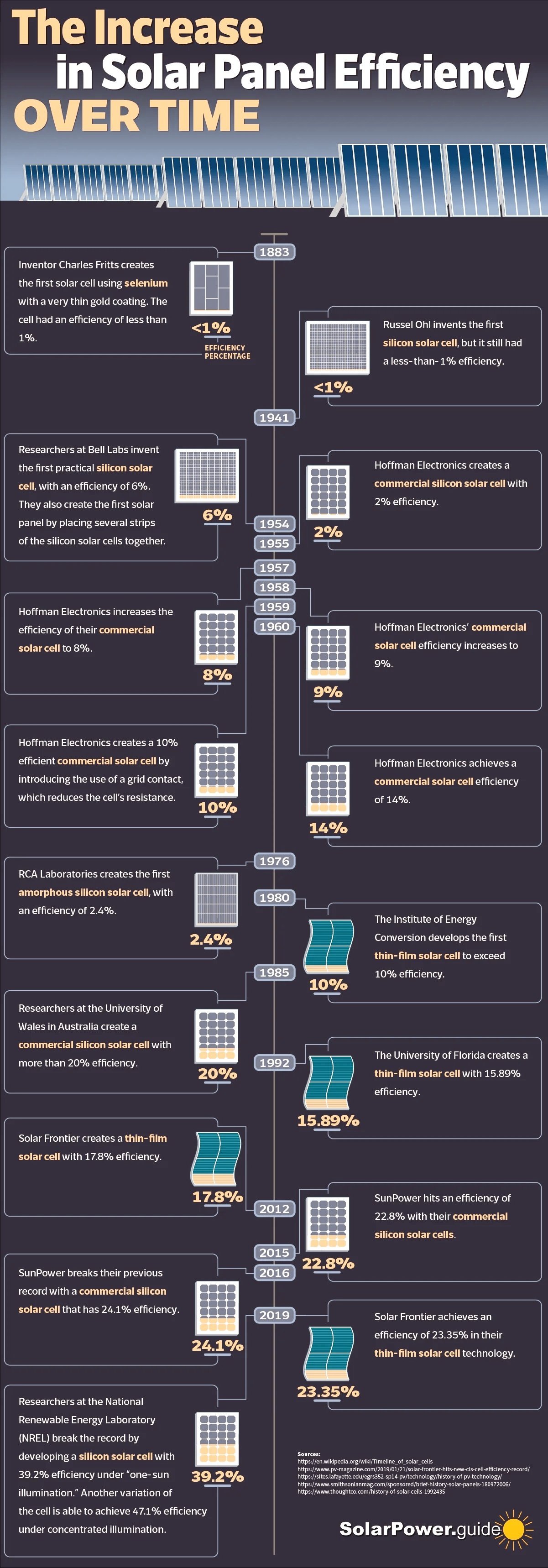For reference: even though plant photosynthesis is reasonably efficient at producing glucose, if you were to extract and process that glucose into a usable biofuel like ethanol, the usable energy conversion for us is around 1%
Solar energy to glucose energy through photosynthesis is about 10% to 12% (this includes energy lost through light wavelengths that is not compatible with the photosynthesis pathway, similar unusable wavelengths also exist for solar panels). So that amount of solar energy is available to the plant for metabolism. Interestingly enough, if you ate the plant, you also get a similar usable energy of about 1% (of the sun’s original energy) so our biofuel conversion processes are on par with biological digestion, and our current solar cells surpass natural solar energy conversion in plants (though that’s not a completely fair comparison since we’re generating electricity while plants make glucose, which has additional losses in the chemical reactions).
What’s odd about PV is that you must completely change your habits and prefer consuming during the day instead of during the night (which was a very common and suggested behavior to save money on the bill)
At least it aligns with when air conditioning is used the most. That’s the hardest thing to shift temporally, everything else just requires some conscious effort and is relatively painless to switch.
So a graph of efficiency over time would have been too boring? Even just a little one in the corner to make the trend clear.
Don’t particularly like that first source being Wikipedia either. Literally the article for “timeline of solar panels” lol, could have just read that and cut out the middleman.
It’s cool to have a nice looking visualization though.
Fair
I think they mean the University of New South Wales. There is no University of Wales in Australia

No image or link in the post, or do I overlook something?
Can you see it now?
Yes, thank you
You should click/tap the title or the small picture near it.
How long do they last, and what’s the environmental impact of creating and recycling them?
In general, it is estimated that a solar panel needs around three years to produce the energy required to offset the carbon dioxide emitted in its production. The lifetime of a solar panel system is around 30-40 years,
https://solarisrenewables.com/blog/carbon-footprint-of-solar-panel-manufacturing/
@Suoko @OsrsNeedsF2P
Can be less than 15 years life. Batteries 2 to 8 years.









